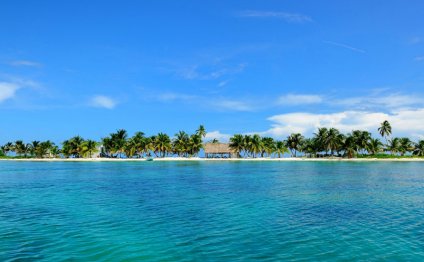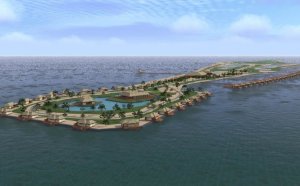
Belize School System
Education in Belize is governed by the Education Act (Chapter 36 of the Laws of Belize).
History[edit]
The growth and transformation of Belizean education took place in a number of phases, each related to important changes within the political and economic history of the country. During the initial phase, between 1816 and 1892, the church-state partnership became institutionalized. Religious initiative and control, extremely limited state intervention, and vigorous competition of religious denominations for the allegiance of the inhabitants characterized this phase.
The intensification of denominational rivalry, the benign neglect of the colonial state, and the growing influence of United States Jesuit missionaries in education characterized the second phase which lasted from 1893 to 1934. In 1934 the director of education in Jamaica made a thorough investigation of British Honduras's education system. Various reforms were proposed to increase spending on the school system and improve the standard of education. Implementation of many of these reforms began in the late 1930s.
During the next phase, from the late 1940s and early 1950s, the educational and social activities of the Jesuits influenced the rise of an anti-British, anticolonial nationalist movement. In the late 1950s and early 1960s, Jesuits led efforts to redress the elitist, urban-centered biases of postprimary education that perpetuated not only social inequality, but also the historical dominance of Belize City over its primarily rural hinterland. By the late 1950s, the Jesuits had emerged as the dominant influence at almost every level of formal education.
With the advent of a large degree of self-rule in 1964, the government began to assert its control over schooling. Formal control over education policy and planning passed from British-born clerics and colonial administrators to British-trained Belizeans. Actual education practice, however, changed very little; the religious denominations continued to determine the direction and pace of educational expansion. United States influence within Belizean schools intensified, not only through the adoption of certain Jesuit practices for systemwide use, but also through the arrival of Peace Corps and other United States volunteer teachers and agencies such as CARE and the Michigan Partners.
As the demand for education outstripped the capacities of the churches—even the Jesuits—to provide it, interdenominational cooperation grew and the state assumed a more central role. By the 1970s, the Belizean government had assumed the leading role in establishing new schools, especially at the secondary and tertiary levels. The government conceived of education as an essential tool in the peaceful struggle for independence. But the expansion of educational opportunities outstripped the state's resources, leading to an intensified reliance on external aid. Since 1981, the United States has provided the bulk of this aid. This situation caused many Belizeans to fear the rise of a new form of imperialist control over the country.
Nowhere were fears of recolonization more realized than in higher education. In 1979 the ruling People's United Party (PUP) government established the Belize College of Arts, Science, and Technology (Belcast) with the intention of breaking Belize's dependence on the outside world for university education. The PUP envisioned Belcast as a government-run institution, with no participation from the church. Funding was secured from the European Economic Community for the construction of a campus in Belmopan.
The campus was never built because the PUP was swept out of office in a landslide victory by the rival United Democratic Party (UDP) in December 1984. The UDP revoked the Belcast ordinance and invited Ferris State College of Big Rapids, Michigan, to establish and manage a new institution, the University College of Belize (UCB). Control over the UCB program rested not with Belizeans, but with the administration of Ferris State College. The birth of UCB embodied Belizean nationalists' worst fears: the country lost sovereignty over an institution that symbolized Belize's first major effort to break from the country's colonial past in the education sector. The intense controversy arose again in 1991 when it was discovered that Ferris State College had failed to obtain proper accreditation for the UCB program, thus placing into question the value of the degrees UCB had granted since 1987. Following this controversy, the new PUP government revoked its agreement with Ferris State and assumed full control over the institution.
School system[edit]
Pallotti High School in Belize City
The Belizean school system is a loose aggregate of education subsystems. The system is based on British education and is broken into three levels: Primary education, Secondary education and Tertiary education. Belizean children begin their eight years of primary education with two years of "infant" classes, followed by six "standards." Secondary education is divided into four "forms." Sixth form is a two-year post-secondary course, originally intended to prepare students for the Cambridge Advanced or "A-Level" examinations. Since the early 1970s, sixth-form institutions have also bestowed Associate of Arts degrees sanctioned by the United States Association of Junior Colleges.
Other post-secondary institutions include, University of Belize, Galen University, Wesley Junior College, in addition to UCB. Belize contributes to and participates in the multinational University of the West Indies. The University of the West Indies also maintains a small extramural department in Belize City.
facilities management document management system general management cerberus capital management capital management charleston management wellington management professional property management health information management jobs rental management companies near me how do you spell management document management system marketing management google ads management wells fargo asset management warehouse management jobs compass property management quality management system wealth management marathon management property management greenville sc total property management administration in management gifford management group grs management diversified property management rental management companies conflict management strategies inventory management system supply chain management salary construction project management management music management by objectives compliance management five star property management abbreviation for management coast property management rental management companies near me conflict management rental management company bend property management model management management company grs management care management home management waste management customer service quality property management hudson homes management hawthorne management balyasny asset management waist management waste management golf conflict management styles mainstreet management property management fresnoShare this Post
Related posts
San Pedro High School Belize
San Pedro High School is a private/government aided secondary school on the island of Ambergris Caye, Belize. Ambergris Caye…
Read MoreCaye Chapel, Belize
The Caye Chapel Island Resort, described by sales agents as “the ultimate private retreat” and “a true trophy property, ”…
Read More










